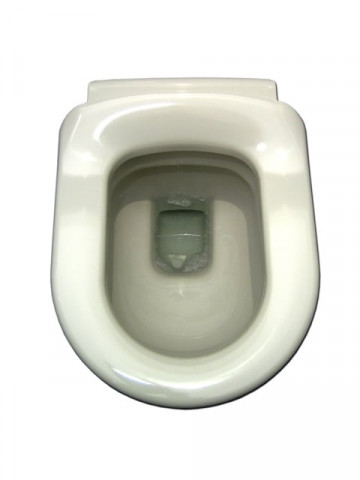Punjab plans access to flush toilets for all by 2025
Provincial govt to announce policy on waste disposal, sewerage.

The Punjab government is to announce a formal sanitation policy aiming to provide access to safe and affordable sanitation to the entire population of the province by 2025, The Express Tribune has learnt.
An official familiar with the development said that this meant that everyone would have access to a flush toilet by 2025. The policy will address the proper disposal of hospital waste, liquid waste, and agricultural and industrial waste, he said.
The policy will be enforced by a committee, headed by the minister concerned, acting as regulator, facilitator and enabler rather than a direct provider of services. The government would seek to fund the policy not just from its own budget, but also by tapping into the private sector and “community investment, with minimum borrowing from international agencies,” said the official.
The provincial as well as local governments will make annual budget allocations for the sanitation policy in their development plan, said the official. Public toilets would be built through public-private partnerships on a build, operate and transfer basis. Governments at the city and town level would prioritise the construction of waste disposal facilities, treatment plants and trunk sewers.
The Environment Protection Department will be responsible for monitoring industrial and municipal effluent in accordance with the national environment quality standards. The Local Government and Community Development Department will maintain a database on the production and disposal of waste.
The government will encourage private sector participation in the provision of sanitation infrastructure and its operation and management. NGOs and community-based organisations will be asked to help mobilise communities and do door-to-door campaigns to raise awareness of sanitation issues.
At the union council level, teams of community technicians would be trained in surveying, mapping, estimating and supervising infrastructure projects or social development projects.
A senior official of the Water and Sanitation Agency said that around 80 per cent of diseases prevalent in Pakistan – including polio, diarrhoea, jaundice, typhoid, malaria and cholera were caused by dirty water or poor sanitation.
According to a survey, about 70 per cent of the population of Punjab lives in households with access to some sanitation facilities, and 67 percent of the population has access to a flush toilet. Ninety-six percent of the population has access to sanitation facilities in urban areas, compared to 58 per cent in rural areas, the official said.
Published in The Express Tribune, July 8th, 2012.



















COMMENTS
Comments are moderated and generally will be posted if they are on-topic and not abusive.
For more information, please see our Comments FAQ